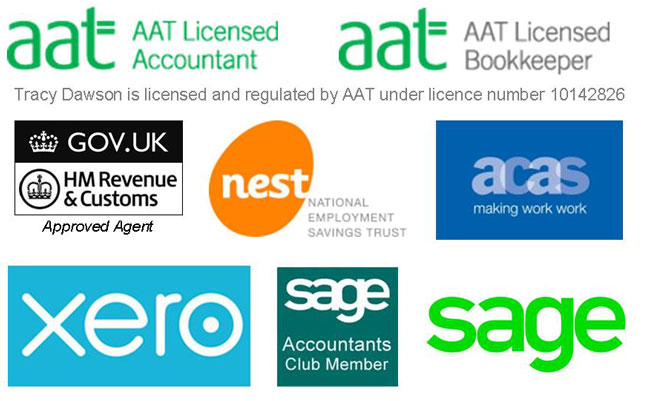payroll
The legal obligations and responsibilities fall heavily on businesses who employ staff and with the increasing complexity and ever changing regulations it can be difficult to ensure you are complying with and keeping abreast of all new developments. Payroll administration can be time consuming and complicated for many small businesses.
new employers
If you are planning on employing staff we can advise you from the very start on how to apply to the HM Revenue & Customs to register as an employer. We can guide you in understanding the responsibilities and deadlines and help you to avoid penalties for late submissions and late payments. If you would like to process your payroll within your own organisation, we can help you set up your payroll system and train your staff on how to process the payroll, or we can come along and process your payroll for you.
outsource your payroll to us and have peace of mind you are fully complying with the current legislation and legal requirements
We offer a comprehensive payroll service to employers to include;
* periodic payroll processing of your choice
* fully computerised reports and payslips
* choice of receiving your reports and payslips by post or email
* payslips can be emailed or posted direct to your employees
* rti compliant
* updates on any legislation changes throughout the fiscal year
* notifications on how much and when to pay your HMRC liability for paye and nic
* all online submissions to the HMRC, starters, leavers, year end P60 certiicates
below are some of the responsibilities for the employer
pay as you earn (paye)
Introduced in 1944 it places an obligation on an employer to calculate and deduct the amount of income tax and national insurance from their employee's pay at source, before the employee receives it. The system and the way employers send information to the HMRC has remained unchanged since 1944 until 6th April 2013 with the introduction of RTI (Real Time Information).
real time information (RTI)
The structure of paye has remained unchanged, but RTI has change the way in which employers submit paye details to HMRC. Under RTI, information about paye payments will be submitted each time a payment is made as part of the payroll process, rather than at the end of the year. Every time you pay your employees you are required to send your RTI return's (full payment submission) to HMRC online, most employers are legally required to use RTI. RTI enables a more efficient response to paye errors such as under of over payments. It also reduces fraud and ensures people received the benefits they are entitled to quicker.
national insurance
Introduced in the late 1940's the National Insurance Contribution (NIC) is payable by both the employer and the employee. Class 1 NIC is payable by both the employer and employee on earnings. Class 1A and 1B may also be payable by the employer should they provide their employee with benefits in kind, such as a car, van, healthcare etc.
auto-enrolment
Every employer with at least one member of staff now has new duties, including putting those who meet certain criteria into a workplace pension scheme and contributing towards it. Each employer will have a staging date which is the date they must comply with this new legislation. Click here for more information on how we can help you.
statutory sick pay (ssp)
statutory maternity pay (smp)
statutory adoption pay (sap)
statutory paternity pay (spp)
These are just a few of the obligations, not to mention keeping up to date with the National Minimum Wage rates and Statutory Holiday entitlements, all these arrive with ample provision for penalties in the event that the employer should choose not to bother.
Memberships and Associates:



 ©
©